Archives
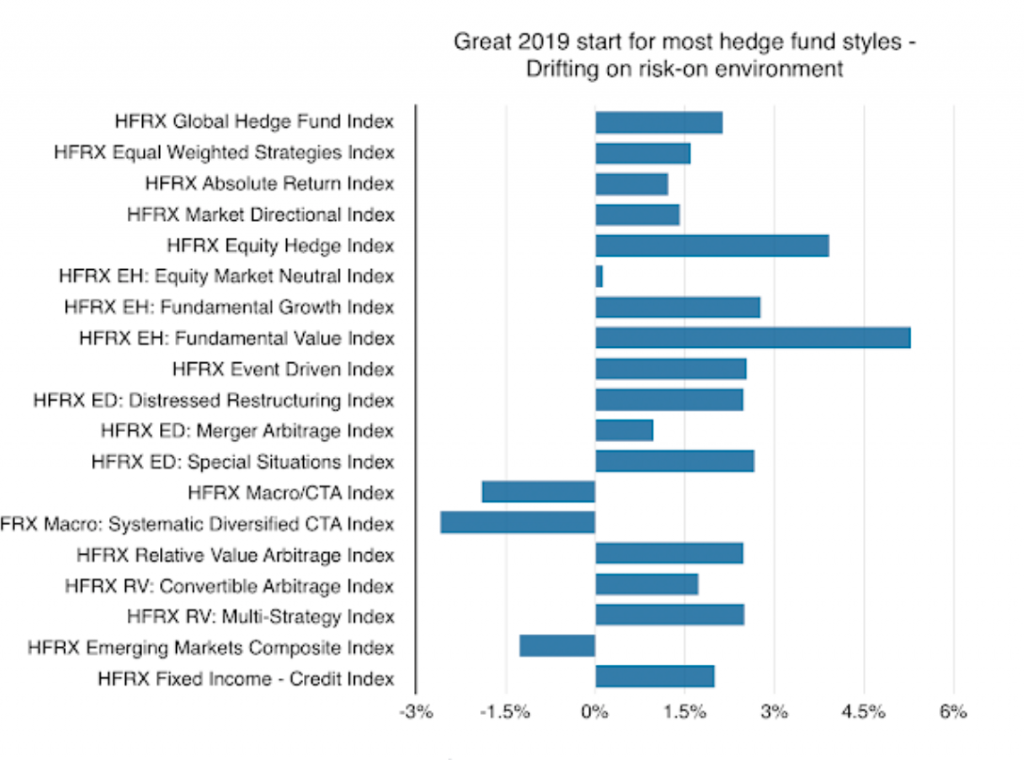
A risk-on environment and the hedge fund world is good
Hedge fund styles as measured by the HFR indices showed strong positive January performance in tandem with the gains in the stock market. When in a risk-on environment many hedge fund styles are winners.
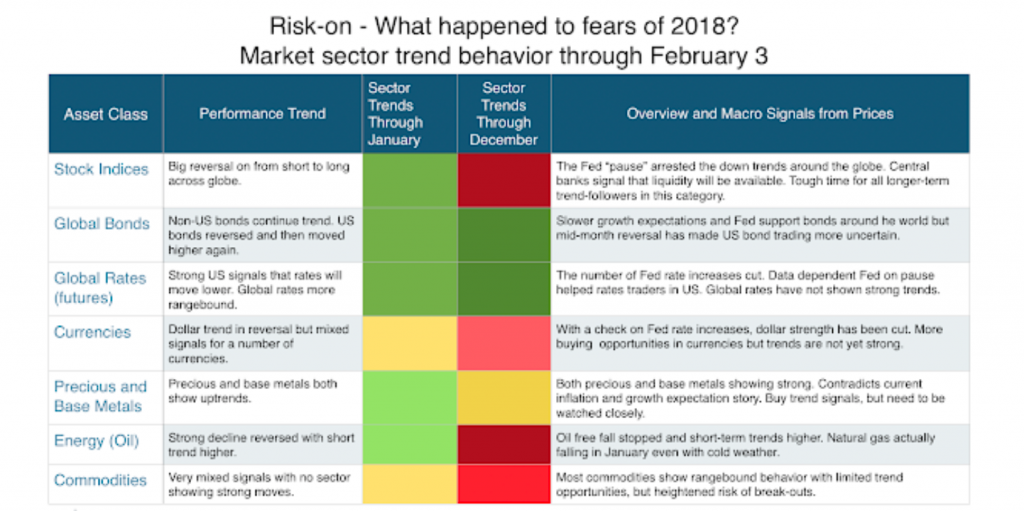
Risk-on- What happened to fears of 2018?
The equity reversal was tough on many trend-followers. This reversal spilled-over to US bonds during the month. Good buy trend signals now in both equities and bonds. Dollar strength reversed on Fed pause remarks. Metals and energy both moved higher during the month even with global growth threats. Commodities asset class is not a trend rich environment at this time.
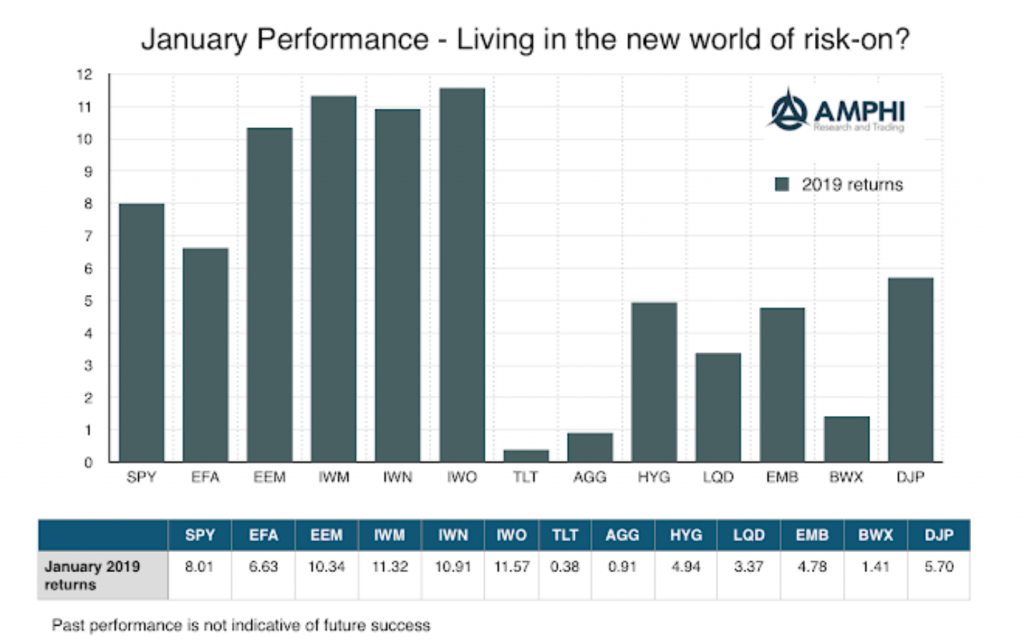
Living in the new world of risk-on? Be careful
It’s all about the “pause” from the “data dependent” Fed at the beginning of the month. It was reinforced with Chairman Powell comments at the end of the month. The data looked at by the Fed is based on macro fundamentals, but the perception is that the Fed is now financial asset data dependent.
The stock-bond mix and equity premia over time – Never oversell equity exposure
Many investors don’t appreciate that 2018 was highly abnormal for asset allocation. First, the annual excess return from holding equities is generally positive with the exception during recessions. 2018 was not a recession year. Yes, there was a slowdown in the fourth quarter, and growth expectations have slowed but the numbers do not suggest a recession at this point. Second, the likelihood that both stocks and bonds will be negative in a given year is very unusual. There has only been a 4.44% chance of this occurring over the last 90 years using the SPX and 10-year Treasury returns. It is highly unlikely that we will see a similar year in 2019. There have only been seven periods when the equity premium was negative for two or more years in a row.
Global stocks – All about avoiding global slowdowns and recessions
Is it that simple? Global equity investing is all about missing the big macro risks – recessions. There are headline risks every year, but it is always about economic growth when you step-back and look at annual performance. If global growth appreciably slows, global stocks are hurt. A simple long-only asset allocation strategy is to stick with long-term trends with the ability to walk-away when a recession or slowdown occurs.
Liquid or Illiquid: Are you getting paid enough for less liquidity?
A key issue with any hedge fund investment is liquidity. How much should you be paid for illiquidity with assets? How much should you be paid for illiquidity with a fund structure? How much liquidity do you need? What are the liquidity terms that are acceptable for a fund?
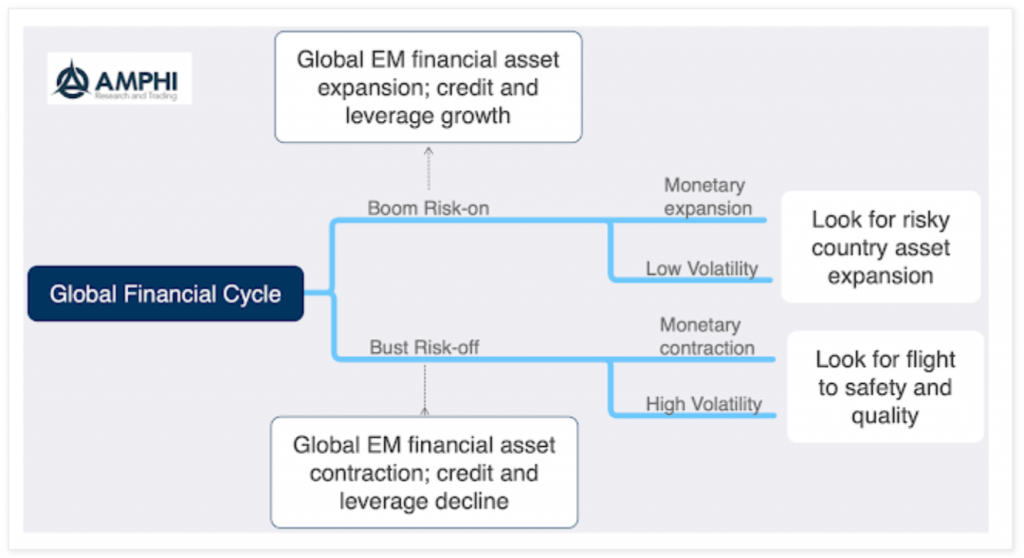
Global Financial Cycle – Look for the risk regimes
A recurring theme for our forecasting model is not predicting the future but just identifying the current regime. It is more important to first know where you are before you determine where you might be going. If you have ever been lost, the best solution is to first figure out your current location.
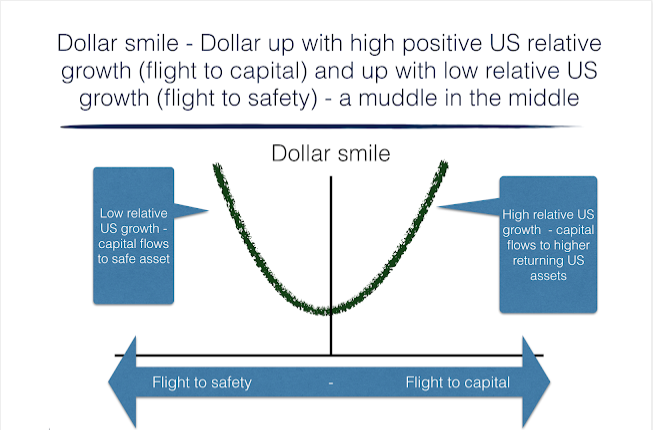
Dollar smile – We are moving to the smile bottom
A good simple approach for framing the longer-term movements in the dollar is through using the narrative of a dollar smile. We have written about this years ago, but think it is relevant today. The dollar smile, first popularized by Stephen Jen, says that currency behavior is driven by two competing regimes. Regime 1 is […]
Concentration, inequality and the status quo – Size matters but not always for the better
A capitalist system is not always competitive environment, but competitive environment is a capitalist system. One key macro issue that is not often discussed is the increasing concentration of businesses in the US and other capitalist countries. While not monopolies, an increasing amount of market share is in the hands of fewer companies and form oligopolies.
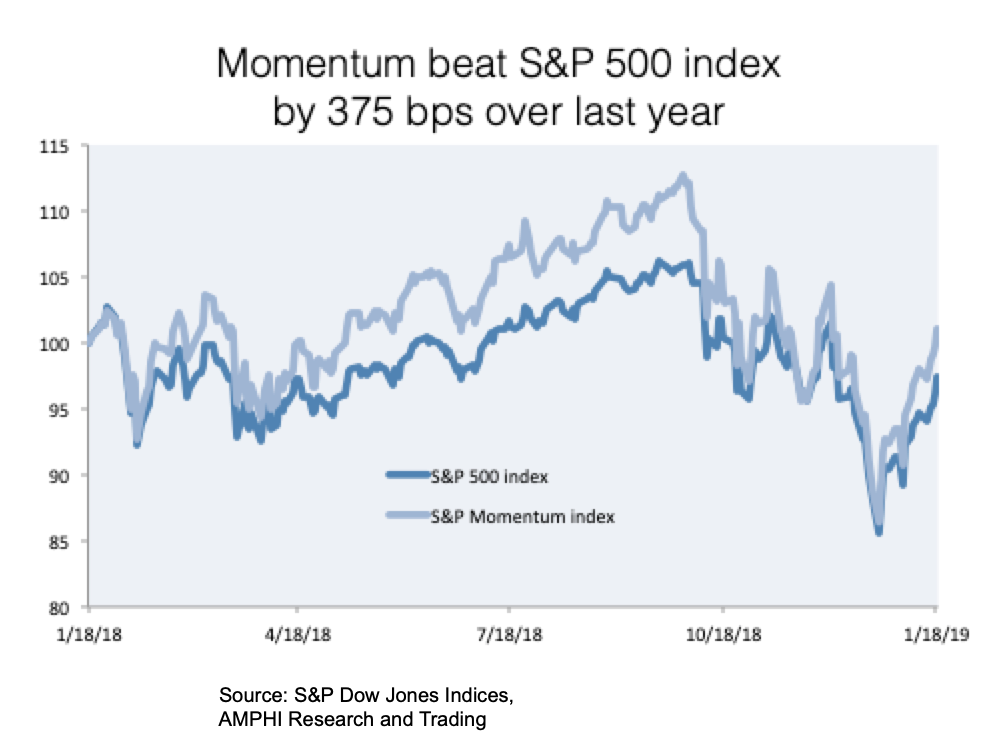
Momentum is still a viable strategy – Look at the numbers
There has been a lot of discussion on the lack of success with momentum and trend-following strategies. There is little doubt that there has been greater dispersion in returns across managers. There have been winners and losers with disappointment focused on some larger high profile firms.
Strategies for Assessing ’40 Act Alternative Investment Funds
With the increase in ’40 Act alternative investment fund offerings, there is greater interest in how to use these funds to help diversify portfolio risks effectively. There are a number of classification schemes that often overlap with some traditional mutual fund categories. Hence, there is an issue of how to best classify the set of […]
The Balancing of Global Risks – What Do You Need To Do?
The World Economic Forum has produced their Global Risks Report 2019 (14th edition) this week. The report provides an exhaustive listing of the greatest potential threats to the global economy and discusses the potential linkages between these risks. The WEF describes five categories of risk: economic, environmental, geopolitical, societal, and technological. It is worth spending time getting their assessment although be warned that risks are everywhere and not going away. There is no good news with these potential threats.
In credit do you trust? – This trust may be misplaced
The origin of the word credit, credere, is Latin for believe or trust. So there is a simple question for any credit investor, do you believe that current outstanding credits can be trusted to payback all interest and principal over the next few years? It is a simple question and many who trusted payments a year ago do not have the same trust today.